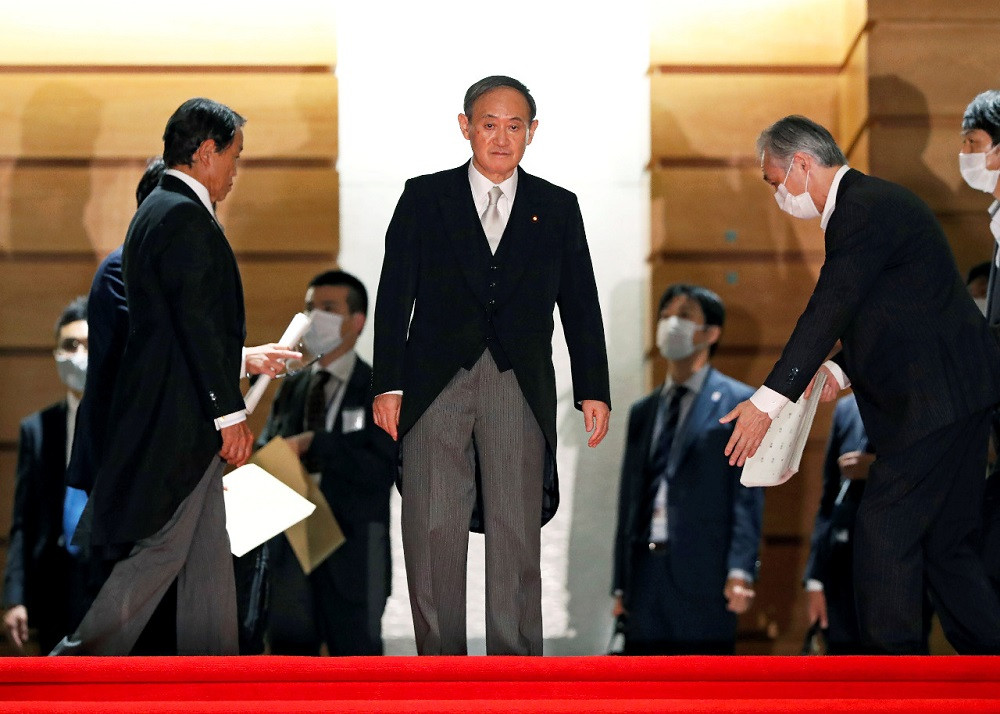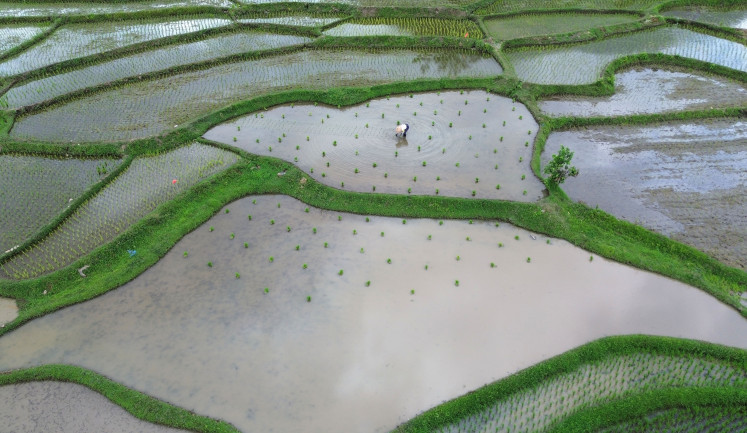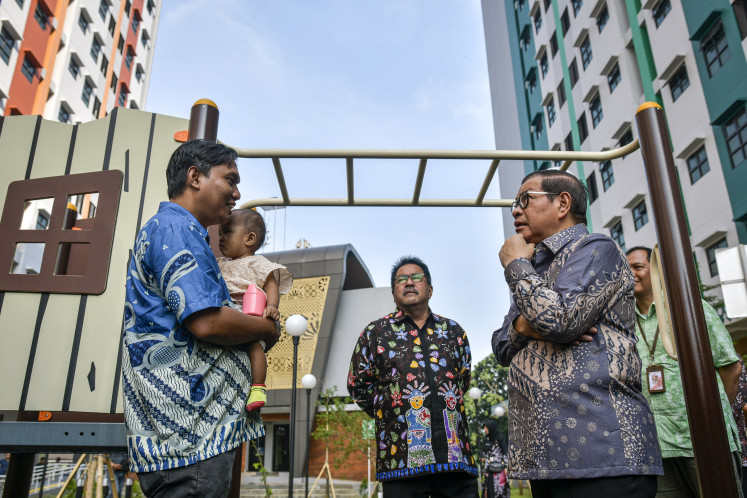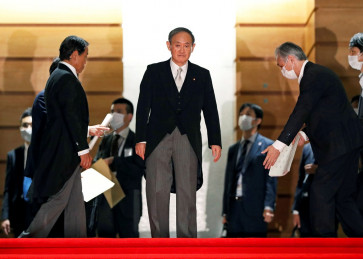Popular Reads
Top Results
Can't find what you're looking for?
View all search resultsPopular Reads
Top Results
Can't find what you're looking for?
View all search resultsThe outlook of Indonesia-Japan relations under PM Suga
While LDP’s main impetus of pushing Suga toward premiership is to keep the status quo, some changes in Japan’s foreign policy focus should be expected.
Change text size
Gift Premium Articles
to Anyone
J
apan has elected Yoshihide Suga the new prime minister, replacing Shinzo Abe who resigned amid a global pandemic. Suga’s appointment is the ruling Liberal Democratic Party’s (LDP) way to ensure continuity of Abe’s major policies.
Suga himself has shown his keenness toward stability, vowing to maintain the ongoing Abenomics economic policy and coronavirus response during his campaign.
In his previous posts, Suga mainly demonstrated his influence over domestic policies. His rise to the premiership, albeit considered the safest choice in the current situation, has sparked concerns on the future of Japan’s foreign diplomacy.
When asked about his diplomatic trajectory, Suga promised to make “assertions at highlevel talks” with China, while maintaining “solid ties with Asian nations by having the Japan-US alliance as the foundation”. Throughout his career in the Abe administration, Suga made only two overseas trips, to Washington, DC, in 2019 to discuss issues related to North Korea and to Guam in 2015 to talk about the relocation of US troops from Okinawa.
Highlighting his involvement in “all of the important policy decisions” and presence during high-level Japan-US phone calls, Suga affirmed his goal to promote his own diplomatic footing, while at the same time acknowledging Abe’s foreign diplomacy feats and how he “cannot do the same” as his predecessor.
The Free and Open Indo-Pacific Strategy (FOIP) is undoubtedly one of Abe’s biggest flagship policies. A delicate balance between balancing China and hedging against the decline of Pax Americana, the FOIP has led to the intensification of Japan’s strategic relations with key countries such as India, Vietnam and Indonesia.
In economics, Indonesia has welcomed many Japanese companies onto its soil. During a meeting with President Joko “Jokowi” Widodo in 2018, Abe voiced his appreciation for Indonesia’s improving ease of doing business rating. Japan also participates actively in the Jokowi administration’s ambitious infrastructure development plans, with the Jakarta MRT project as a shining example.


















